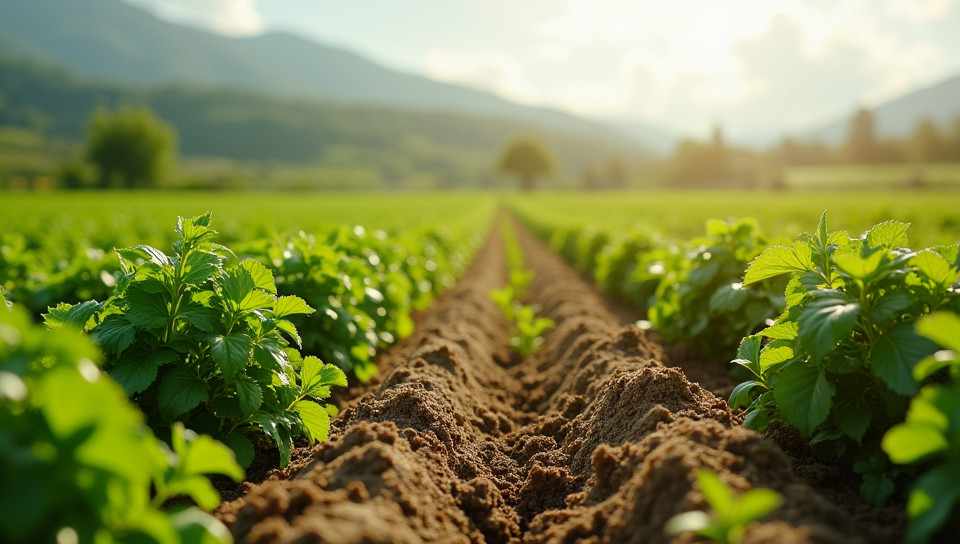Sustainable farming practices reduce carbon footprint of food 74%

The Future of Food: How Sustainable Farming Practices Can Help Reduce Our Carbon Footprint
As we continue to grapple with the challenges of climate change, it's becoming increasingly clear that our food system is a major contributor to greenhouse gas emissions. From deforestation to fertilizers, traditional farming practices have a significant impact on the environment. However, there is hope for change. Sustainable farming practices are not only better for the planet, but they can also improve crop yields and increase food security.
What is Sustainable Farming?
Sustainable farming practices prioritize environmental stewardship and social responsibility alongside economic viability. This approach recognizes that agriculture has a critical role to play in addressing climate change, conserving biodiversity, and promoting ecosystem services.
The Benefits of Sustainable Farming
- Reduced synthetic fertilizer use
- Improved soil health through crop rotation and cover cropping
- Increased water efficiency through drip irrigation systems
- Promoting agroforestry and permaculture practices
- Support for local food systems and community development
Regenerative Agriculture: A Key Driver of Sustainability
Regenerative agriculture is a subset of sustainable farming that focuses on regenerating soil health, biodiversity, and ecosystem services. By adopting practices like no-till or reduced-tillage farming, farmers can sequester carbon in the soil, improve water retention, and enhance crop yields.
The Economic Benefits of Sustainable Farming
While some may assume that sustainable farming is a luxury only wealthy countries can afford, research shows that these practices can actually increase farm profitability. By reducing input costs through more efficient use of resources, farmers can enjoy higher profits while contributing to a healthier environment.
A Call to Action: Supporting Sustainable Farming Practices
As consumers, policymakers, and farmers, we all have a role to play in promoting sustainable farming practices. We can start by making informed choices about the food we eat, supporting local farmers who use regenerative methods, and advocating for policies that encourage this type of agriculture.
Conclusion
The future of our planet depends on transforming our food system to prioritize sustainability. By embracing regenerative agriculture and adopting environmentally conscious farming practices, we can reduce greenhouse gas emissions, promote biodiversity, and create a more resilient food system for generations to come. The time to act is now.
- Created by: Leon Kaczmarek
- Created at: Aug. 19, 2024, 10:43 p.m.
- ID: 7781






